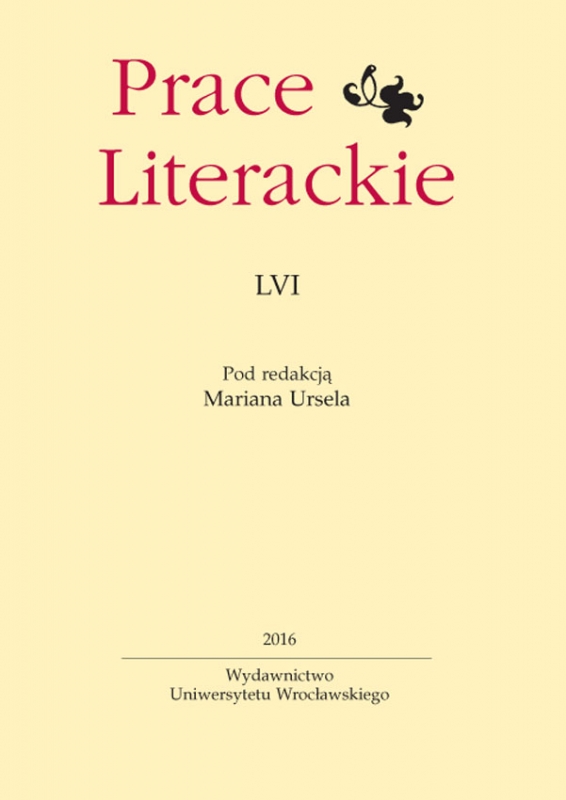

Artykuły

A hidden exemplum. On the role of Latin in Thomas Mann’s The Holy Sinner
However Thomans Mann’s montage technique is very well known, there are still parts of his novels, which are not clear enough. It is the case of Latin in The Holy Sinner, which is used not only to simply imitate the medieval literature, but also in the purpose of parody and irony. What is more, in the beginning of the novel narrator quotes — as it turns out — words from De amore inordinato, a story from Gesta Romanorum quite similar to the story of Gregorius, and criticize them. It seems that this is not only an irrelevant statement, but a commentary to the whole work, which has to be recognized by readers to understand it. By the quotation Mann itself indicates the new way of showing the matters of unpure love, sin, grace and — wider — religion, which is based on the very specific irony. Because of this uncommon technique some researchers argue that The Holy Sinner is just a trifle, but behind it there seems to be misunderstanding. The type of thinking, which connects a sense of humour and religious solemnity, used to be popular in Ancient Greek literature, and Thomas Mann in some way brought it back — just as he did with Latin, in his novel not a dead language, but truly alive.